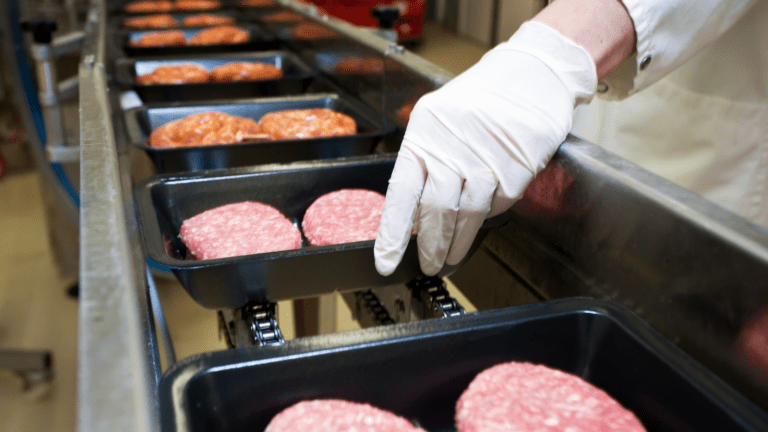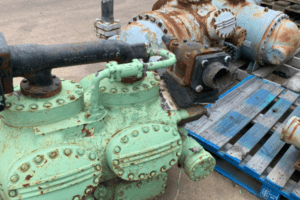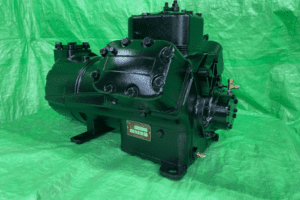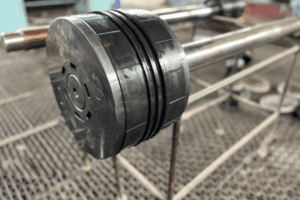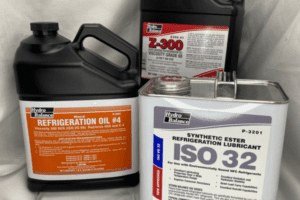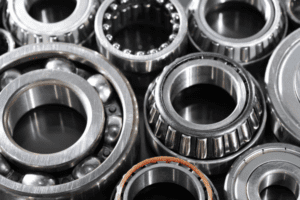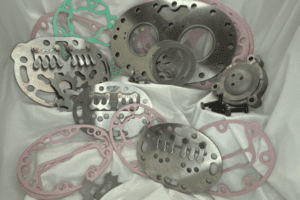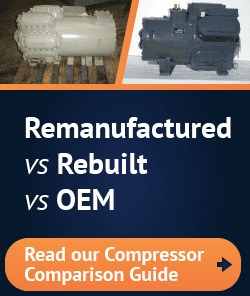Among businesses that rely on commercial refrigeration, few have needs as intensive as meatpacking plants.
Refrigeration must begin the instant that animal processing starts. Freezer storage must be maintained at below zero temperatures to meet all needs. Cooling, cutting, and processing call for extreme cooling at consistent levels. Bacteria can develop and spread if refrigeration lapses.
In the popular imagination, meat processing operations call up frigid temperatures and cramped conditions. While the number of people on any one shift may vary, human body heat is the enemy of meat refrigeration. Refrigeration system planning must therefore take total occupancy into account. Cooling is maintained overnight.
In large meatpacking plants, dozens or hundreds of employees may slice, shave, and clean thousands of meat animals each day. It is not unusual for larger facilities to process 5,000 cattle or even more on a daily basis. A thousand people may remain in close proximity during that time, generating plenty of heat.
With all these demands and more, the average meatpacking plant is a huge refrigeration consumer.
For Meat Packing Plants, Refrigeration Drives Energy Consumption
Energy use varies considerably by a facility’s size and throughput, but some factors remain consistent. Since meat processing for export requires more refrigeration, it is even more challenging than domestic production. A 2015 study indicated refrigeration, pumps, and conveyor belts were key equipment pieces in energy usage.
Of all the sources of energy consumption in a plant, refrigeration dwarfed the rest.
Cooling was responsible for using more than 17.5 kilowatt hours per head, exceeding 45.5 megajoules for every thousand pounds of live body weight. Accounting for 16% of all energy use overall, cooling was a greater draw on the electrical system than any process operation. Only total overnight energy use was higher.
Knowing this, the right selection of commercial compressors is crucial to cost-effective meat-packing.
If a compressor is not precisely suited to the work – in size, load, environmental suitability, and overall performance characteristics – it could add hundreds of dollars to the annual cost of business. Multiply this across dozens or hundreds of compressors and it is easy to see how it creates a major drag on profitability.
To realize true efficiency, commercial compressors must be seen as essential meat processing equipment.
Remanufactured Compressors Help Meat Processing Plants Save Money
Meat agriculture is held to extremely high standards, and for good reason.
Even the slightest discoloration or change in surface texture can be reason enough to bar a cut of meat or even a 1,000-pound load from a future sale. Inspectors are trained to catch small changes that result from mishandling or even a brief loss of complete refrigeration power.
Under circumstances like these, there is no trade-off between cost and performance: Commercial compressor systems chosen in meat processing must be able to deliver both. And they must be able to do so reliably, ensuring daily throughput is not interrupted by technical glitches.
The best way to meet all of these needs is through remanufactured commercial compressors.
A remanufactured commercial compressor goes through a rigorous process overseen by experts in refrigeration engineering. The compressor is completely disassembled and all components are examined for signs of wear. Replacements are made throughout the system as needed and both the interior and exterior are cleaned.
Once reassembled, the compressor is typically tested under load to demonstrate real-world performance.
The compressor unit is the most important part of any refrigeration system, and does the most vital mechanical work. It compresses refrigerant gas, enabling it to propagate through the rest of the system. While damage elsewhere will make a system less efficient, problems with the compressor bring it to a full stop.
A refrigeration gap as small as fifteen minutes may ruin meat, so facilities leaders at processing plants are eager to stockpile backup equipment. With a potential for hundreds of refrigerant compressor units in service, however, this has not always been possible. Remanufactured compressors make it practical and affordable.
Compared to a new compressor, a remanufactured compressor can:
- Provide robust savings of 20%, 30%, or even more on your initial investment
- Deliver longevity comparable to a new unit (8-10 years with maintenance)
- Enable far faster delivery, anywhere from two weeks to two months sooner
The technical insights that go into remanufacturing a compressor are just part of the story. It also makes sense from a business perspective. When you buy a new compressor, you rarely have the opportunity to work directly with the OEM, but with an affiliated wholesaler empowered to charge a premium for the use of the brand name.
With the ability to work with a trusted remanufacturing team that cares about their success, meat packing plants have been scaling their operations and minimizing their losses even as demand increases. For the unique needs of the meat industry, nothing less than remanufactured will do.

